Strategies for How to Protect Ducks from Predators
How to protect ducks from predators. Well that is easy. Secure the coop and build it from solid materials. Develop a fully hardened enclosure. Remove food and water during the day. Create a fence around the perimeter of your home at least 6 feet tall. Proactively respond to any signs of predators snooping around the property.
Do these and you can rest easy with peace of mind that you have done what is necessary to protect your backyard flock of chickens and ducks.
Duck Coop Ideas for Predator Prevention
The duck coop needs to be hardened from predators. Build a duck coop with solid materials. Plywood sheets, exterior screws, and cover ventilation holes with hardware cloth. When you lock the ducks up at night they are on their own. Expect predators to check the coop. Use a lock of some kind to keep the door secure and you can sleep well at night knowing your backyard poultry is safe from predation.
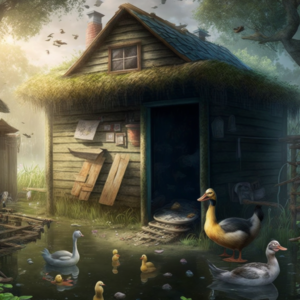
Types of Predators that Prey on Ducks
- Raccoons
- Opossums
- Coyotes
- Bobcats
- Weasels
- Skunks
- Ferrets
- Rats, are really only a threat to ducklings but bring disease and mites
- Hawks
- Other Birds of prey
- Snakes
- And other animals
Depending on the animals that are prevalent in your area take precautions to thwart them from killing your birds.
Lastly, anyone with an urban homestead needs to be vigilant against stray dogs. We had a dog from a neighbor jump our fence and attack our birds. One duck ended up with a broken wing and puncture wounds that took weeks to heal and administering medication to stop infection.

Chicken and Duck Run
A fully enclosed chicken and duck run with a coop located inside is the best way to reduce the predation of your flock. Our chicken and duck run is a combination of a wooden fence and hardware cloth walls and ceiling. This keeps the birds safe from mammal and avian predators. The bottom of the chicken and duck run has an apron of hardware cloth installed to prevent burrowing predators. Rats, opossums, skunks, weasels, and more will tunnel under fences if there is not a barrier buried 1 foot out from the fence line.
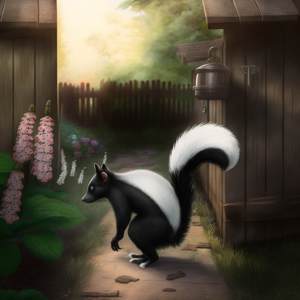
Hardware Cloth Keeps Predators Out
Use 1/4 inch hardware cloth to prevent duck predators from entering the run and coop. It is the best material for building secure protection from any predator. Ultimately, 1/2 inch hardware cloth does work, however, a raccoon may be able to stick its arm through this gap and grab an animal causing them harm. The half-inch hardware cloth is big enough for mice to get into the run. While they may not be a predator they are vectors for disease and mites.
Electric Fencing Protects Chickens & Ducks
Portable electric fencing is an excellent option for homesteaders that have birds on pasture that move. Electric fencing will keep the animals in and at the same time keep the majority of animals that are of concern out. Electric fencing does not keep out avian predators. Therefore, it is recommended to add a rooster, drake, or even a goose or two to your flock of birds. Electric fencing can be permanent. However, the best options for poultry are lightweight and moveable so it is easy to keep a large number of birds protected on grass.
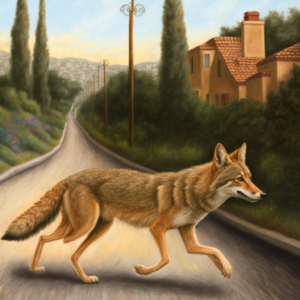
Keep Out Flying Predators
Keeping backyard ducks safe from flying predators is important. Birds in a full enclosure are the safest. Alternatively, adding a drake to the flock will provide your egg-laying girls a little extra protection due to their ever-watchful eye keeping their ladies safe. Urban homesteads offer safety to birds due to the limited flight paths birds of prey have in between houses, trees, and backyard obstacles. A bird will not attack the ducks if they do not think they have enough room to safely capture its prey and then get back up in flight. Tight spaces are intimidating to avian predators. Adding some distractions such as a hanging CD or two or ribbon streamers helps to break up the flight zone and causes reflections that interfere with their confidence in taking a kill.
Keeping Dogs Out
A huge threat to backyard flocks is dogs. As a result, it is important to have your backyard flock protected behind a 6′ fence. Lower fences are very easy for even medium to large-sized dogs to jump over. Add an extra row of lattice to an existing fence to gain height if needed.
The neighbor’s dog is very unlikely to actually kill and eat your chickens or ducks. However, they view them as a play toy and cause serious harm. A dog bite will cause severe puncture wounds that immediately get infected due to a large number of bacteria in the dogs’ saliva. Ultimately, dogs will break their sensitive bones, cause injuries that will never fully heal, and traumatize your birds.
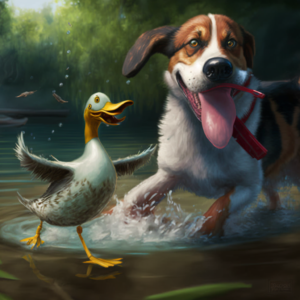
Preventing Rats
Keep rats out of your duck coop and run. Take action on a daily basis to maintain a clean coop and run to create an environment that is not fruitful for rats. Keep food and water picked up and do not leave them out overnight. Use hardware cloth to cover all openings that a rat can fit in. It is critical to secure ventilation holes in a coop. Create a barrier around the ground to your chicken and duck run so rats can not burrow under and enter. Take a few minutes to check the areas under the coop to see if rats have burrowed tunnels under the coop or in nearby areas.
The second you see signs of rats it is critical to place out traps to address the situation. Failing to address a rat problem will lead to rapid growth in the population and an increase in disease around your backyard poultry flock. All urban homesteaders will face the problems created by rats and mice.
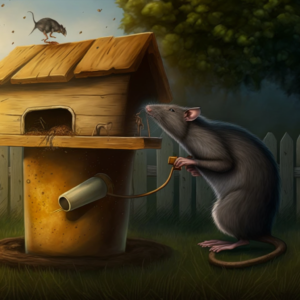
Remove Food at Night
Pick up food containers at night. This alone will reduce the chances of predators coming around. I also recommend removing water, especially during the summer months. Otherwise, your house will be known by the local varmints as the place to come and get a drink and then they will e looking around for anything else they can capitalize on.
Follow these Simple steps for how to protect ducks from predators
How to protect ducks from predators is not complicated.
- Eliminate the easy opportunities for predators to get access to your chickens and ducks.
- Secure the food and water supply at night to avoid being a feeding station for likely predators.
- Lastly, consider building a fully enclosed run so they are protected from birds of prey during the day and have an extra layer of security from roaming animals at night.

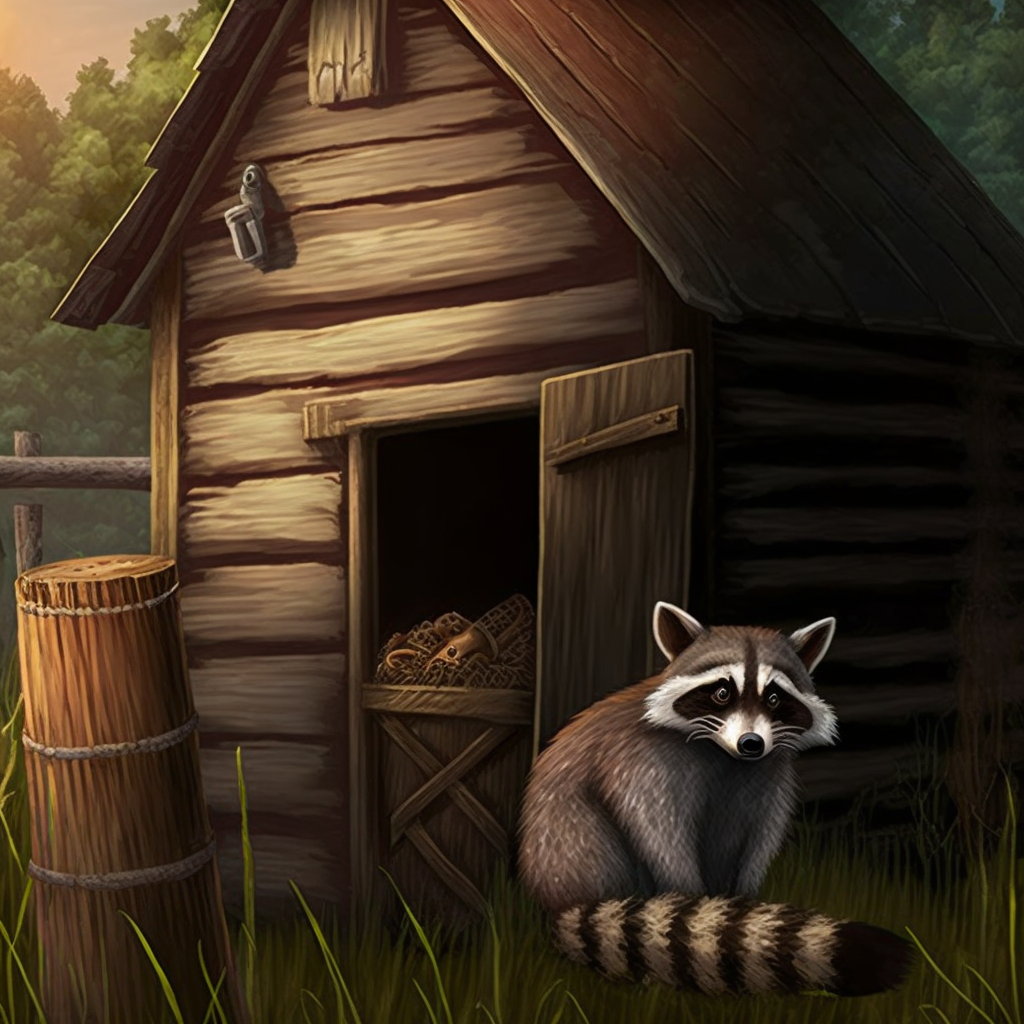


Recent Comments